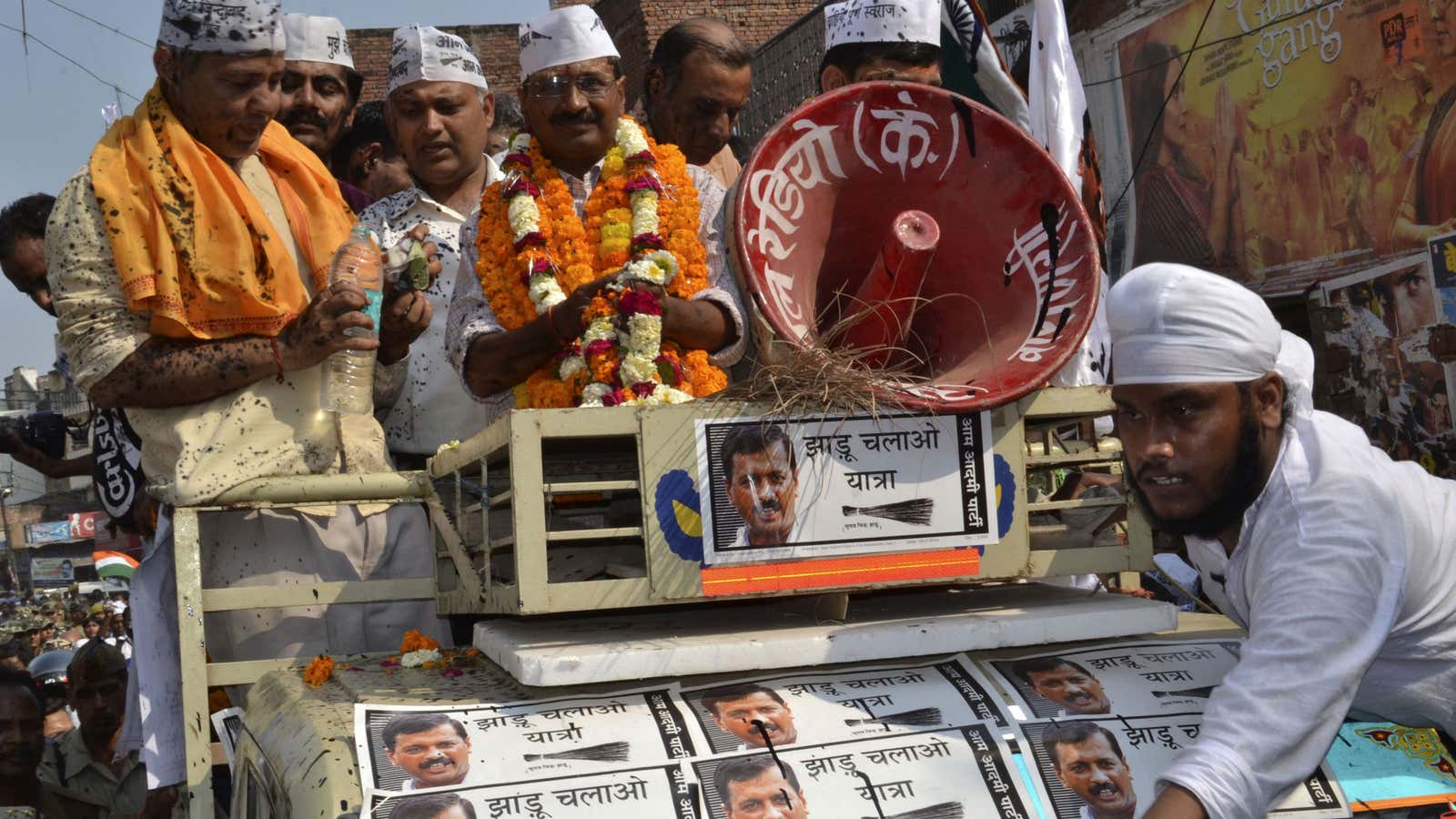The incumbent Congress Party all but just handed Narendra Modi victory in the city of Varanasi.
Modi is on the ballot here as the prime ministerial candidate of the Bharatiya Janata Party (BJP). Congress has put forth Ajai Rai to contest him in the most hotly contested battleground of 2014 national elections, underway for the next few weeks.
Rai, a grassroots politician, is a better choice than some others Congress could have nominated. But in the end, he’s likely just going to end up splitting the anti-Modi vote—which gives Modi an even bigger win.
Rai would take away votes from Arvind Kejriwal, the candidate of the anti-corruption commoners’ Aam Aadmi Party (AAP), who first challenged Modi in Varanasi. Kejriwal was likely to get support from the Muslims, especially a large community of weavers, who have been spinning strategy on defeating Modi in between shifts. (Modi, chief minister of the state of Gujarat, is tainted by the religious violence that erupted in his state in 2002, which claimed more than 1,000 lives, mostly Muslims.)
While tough, beating Modi wasn’t entirely out of the realm of possibility. In 2009 elections, the Muslim-backed candidate almost beat the BJP; Rai finished in third place. In 2004, Congress Party politician Rajesh Mishra won Varanasi. It would have been logical for Congress and the AAP to back one candidate—and unite against Modi.
Muslim weavers in Varanasi, last week, told me that they did not want to openly declare their support for Kejriwal because it would make them appear polarized. They said that the only way of beating Modi would be to avoid the Muslim vote from splitting. And yet that is exactly what the Congress Party has done.
